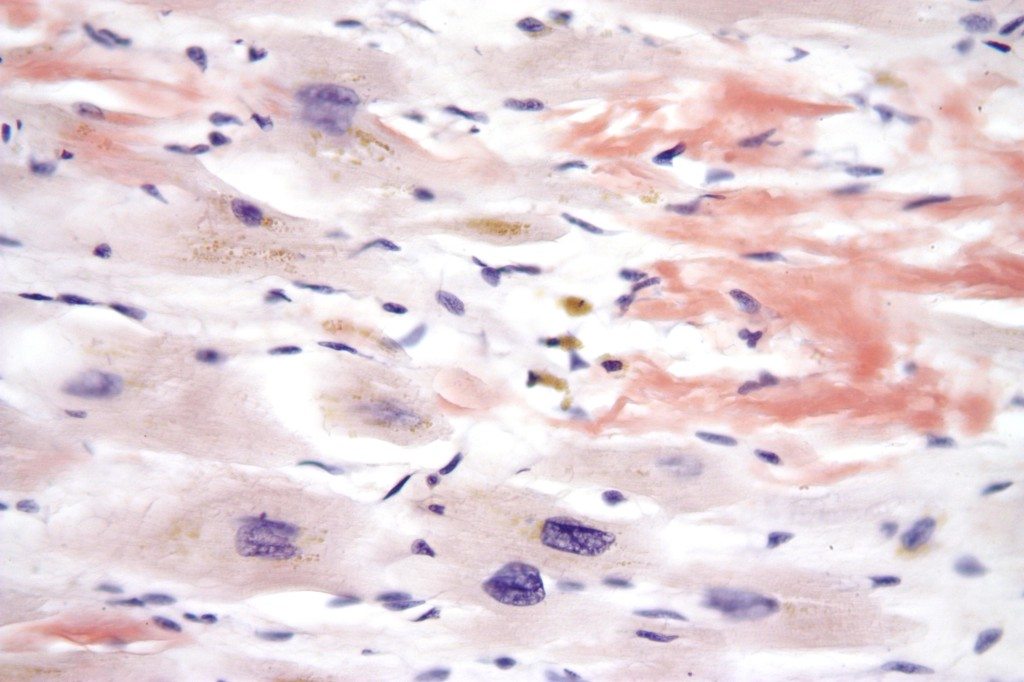Restrictive cardiomyopathy
Restrictive cardiomyopathy refers to a set of changes in how the heart muscle functions, and is one of the causes for cardiac amyloidosis. These changes cause the heart to fill poorly (more common) or squeeze poorly (less common). Sometimes, both problems are present. In a case of restrictive cardiomyopathy, the heart muscle is normal size or slightly enlarged. Most of the time it also pumps normally. However, it does not relax normally during the time between heartbeats when the blood returns from the body (diastole). When the disease progresses, the heart may not pump blood strongly. The abnormal heart function can affect the lungs, liver, and other body systems. Restrictive cardiomyopathy may affect either or both of the lower heart chambers (ventricles). It is very often linked to a disease of the heart muscle. Restrictive cardiomyopathy is a rare condition. The most common causes, in addition to amyloidosis, are scarring of the heart from an unknown cause (idiopathic myocardial fibrosis). It also can occur after a heart transplant.

Other causes of restrictive cardiomyopathy include:
- Carcinoid heart disease
- Diseases of the heart lining (endocardium), such as endomyocardial fibrosis and Loeffler’s syndrome (rare)
- Iron overload (hemochromatosis)
- Sarcoidosis
- Scarring after radiation or chemotherapy
- Scleroderma
- Tumors of the heart
Symptoms
The most common symptoms of restrictive cardiomyopathy are listed immediately below. Many of these symptoms take time to develop, however, this is not always the case. In some individuals, symptoms can occur rather suddenly and become extremely severe in a very short period of time.
Common symptoms are:
- Cough
- Breathing problems that occur at night
- Fatigue and inability to exercise
- Loss of appetite
- Swelling of the abdomen
- Swelling of the feet and ankles
- Uneven or rapid pulse
Other symptoms may include:
- Chest pain
- Lack of focus
- Low urine output
- Need to urinate at night (in adults)
Exams and Tests
A physical exam may show:
- Enlarged or bulging neck veins
- Enlarged liver
- Lung crackles and abnormal or distant heart sounds in the chest heard through a stethoscope
- Fluid backup into the hands and feet
- Signs of heart failure
Tests for restrictive cardiomyopathy include:
- Cardiac catheterization and coronary angiography
- Chest CT scan
- Chest x-ray
- ECG (electrocardiogram)
- Echocardiogram and Doppler study
- MRI of the heart
- Nuclear heart scan (MUGA, RNV)
- Serum iron studies
- Serum or urine protein tests
Restrictive cardiomyopathy may appear similar to constrictive pericarditis, in which case a biopsy of the heart may help in diagnosing correctly. A cardiac catheterization could also be used in place of (or in addition to) a biopsy, however these tests are rarely conducted.
